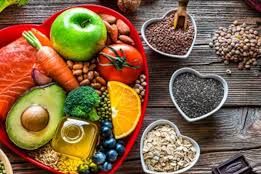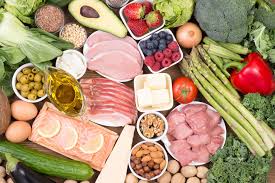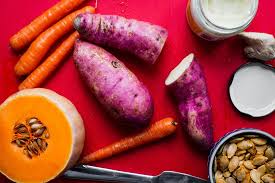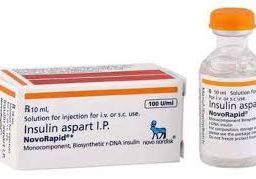
Managing Diabetes: Top Superfoods for Blood Sugar Control
Managing diabetes requires a multifaceted approach, encompassing medication, lifestyle adjustments, and dietary choices. Incorporating specific foods into your meals can be a key component of effectively managing blood sugar levels. We’ll explore 10 ideal foods for managing diabetes, along with their benefits and practical tips for integrating them into your diet.

Managing diabetes requires a careful balance of medication, lifestyle modifications, and a healthy diet. Incorporating specific foods into your meals can play a crucial role in managing blood sugar levels.
Top 10 ideal foods for managing diabetes
Leafy Greens:
Leafy greens such as spinach, kale, and collard greens are low in carbohydrates and high in fiber, making them excellent choices for managing diabetes. The fiber content helps regulate blood sugar levels and promotes satiety. Add leafy greens to salads, stir-fries, or sauté them with a little olive oil and garlic for a nutritious side dish.
Berries:
Berries like strawberries, blueberries, and raspberries are rich in antioxidants, vitamins, and fiber. They have a low glycemic index, meaning they have a minimal impact on blood sugar levels. Enjoy berries as a snack, add them to yogurt or oatmeal, or blend them into a delicious smoothie.
Whole Grains:
Whole grains such as quinoa, brown rice, and oats are high in fiber and packed with essential nutrients. They have a lower glycemic index compared to refined grains, promoting better blood sugar control. Replace refined grains with whole grain options in your meals, such as whole grain bread, brown rice, or whole grain pasta.
Fish:

Fatty fishlike salmon, mackerel, and sardines are excellent sources of omega-3 fatty acids, which have been shown to improve insulin sensitivity and reduce the risk of heart disease in people with diabetes. Include fish in your diet at least twice a week. Grill or bake fish with herbs and spices for a flavorful and diabetes-friendly meal.
Greek Yogurt:
Greek yogurt is a protein-packed dairy option that contains less sugar and carbohydrates compared to regular yogurt. It is also a good source of calcium and probiotics, which can support gut health. Choose plain, unsweetened Greek yogurt and add your own mix-ins, such as fresh berries or a sprinkle of cinnamon, to enhance the flavor.
Legumes:

Beans, lentils, and chickpeas are high in fiber and protein while being low in glycemic index. They help slow down the release of glucose into the bloodstream, promoting better blood sugar control. Incorporate legumes into soups, stews, salads, or use them as a meat substitute in recipes like bean burgers or lentil tacos.
Nuts and Seeds:
Nuts and seeds, including almonds, walnuts, chia seeds, and flaxseeds, are packed with healthy fats, fiber, and protein. They have a low glycemic index and can help with managing diabetes. Enjoy a handful of nuts or seeds as a snack, sprinkle them over salads or yogurt, or add them to homemade granola bars.
Avocado:

Avocados are rich in monounsaturated fats, fiber, and antioxidants. They have a minimal impact on managing diabetes and can help improve insulin sensitivity. Enjoy avocado slices in salads, spread avocado on whole grain toast, or incorporate it into smoothies for a creamy texture.
Cinnamon:
Cinnamon has been shown to improve insulin sensitivity and help lower blood sugar levels. Add a sprinkle of cinnamon to your oatmeal, yogurt, or smoothies. It can also be used as a flavor enhancer in savory dishes like roasted vegetables or curries.
Vinegar:
Vinegar, particularly apple cider vinegar, has been found to improve insulin sensitivity and lower post-meal blood sugar levels. Use vinegar as a salad dressing or add a splash to marinades and sauces to reap its benefits.
Broccoli:
Broccoli is a non-starchy vegetable that is low in calories and carbohydrates while being rich in fiber, vitamins, and minerals. It has a minimal impact on blood sugar levels and offers numerous health benefits. Enjoy broccoli steamed, roasted, or stir-fried as a side dish or add it to salads and soups.
Chia Seeds:
Chia seeds are tiny powerhouses packed with fiber, healthy fats, and antioxidants. They have a low glycemic index and can help regulate blood sugar levels. Sprinkle chia seeds over yogurt, oatmeal, or salads, or use them as an egg substitute in baking recipes.

Turmeric:
Turmeric contains an active compound called curcumin, which has anti-inflammatory and antioxidant properties. It may help improve insulin sensitivity and regulate blood sugar levels. Incorporate turmeric into curries, stir-fries, or golden milk lattes for its health benefits.
Garlic:
Garlic is a flavorful bulb that has been associated with numerous health benefits, including better blood sugar control. It may help lower fasting blood sugar levels and improve insulin sensitivity. Add fresh garlic to your cooking, use it in marinades and dressings, or roast it for a milder flavor.
Brussels Sprouts:
Brussels sprouts are low in calories and carbohydrates while being rich in fiber, vitamins, and minerals. They have a minimal impact on blood sugar levels and can contribute to better glycemic control. Enjoy Brussels sprouts roasted, sautéed, or steamed as a nutritious side dish.
Strawberries:
Strawberries are a delicious and low-sugar fruit option for individuals with diabetes. They are packed with fiber, vitamins, and antioxidants. Enjoy strawberries on their own, add them to yogurt or smoothies, or use them as a topping for whole grain pancakes or waffles.
Tomatoes:

Tomatoes are low in calories and carbohydrates while being rich in vitamins, minerals, and antioxidants. They have a low glycemic index and can help regulate blood sugar levels. Enjoy tomatoes in salads, add them to sauces and soups, or use them as a base for homemade salsa.
Quinoa:
Quinoa is a nutrient-dense whole grain that is rich in protein, fiber, and minerals. It has a lower glycemic index compared to many other grains, making it a favorable choice for managing blood sugar levels. Use quinoa as a base for salads, substitute it for rice in recipes, or enjoy it as a side dish.
Green Tea:
Green tea is a calorie-free beverage that is rich in antioxidants, including catechins. These compounds have been shown to improve insulin sensitivity and regulate blood sugar levels. Replace sugary beverages with green tea and enjoy it hot or iced.
Lean Protein (Chicken, Turkey, Tofu):

Incorporating lean protein sources such as skinless chicken, turkey, or tofu into your meals can help stabilize blood sugar levels and promote satiety. Opt for grilled, baked, or sautéed preparations without adding unhealthy fats or sugary sauces.
By incorporating these additional ideal foods into your diabetes management plan, you can further help with managing diabetes and overall well-being. Remember to work closely with a healthcare professional or registered dietitian to tailor your diet plan to your specific needs and preferences. Together with medication and lifestyle modifications, these foods can contribute to effective diabetes management and improved quality of life. Remember to monitor your blood sugar levels regularly, work closely with a healthcare professional or registered dietitian, and personalize your diet plan based on your individual needs. By making informed food choices, you can take positive steps towards managing diabetes effectively and enjoying a healthy lifestyle.
Disclaimer: The information provided in this content is for general informational purposes only. It is not intended as medical or healthcare advice, diagnosis, or treatment. Always seek the advice of a qualified healthcare professional with any questions you may have regarding a medical condition or healthcare decisions.
















